|
Scripture Readings: Esther 7:1–6, 9–10, 9:20–22 | Psalm 124 | James 5:13–20 | Mark 9:38–50
“…be at peace with one another.” (Mark 9:50b) This is certainly a word from the LORD for our day, isn’t it? This last week, here in New Brunswick we’ve had another COVID change of plans: due to rising cases, new restrictions and emergency measures have been enacted in order to slow down the spread of the virus again, and protect our communities. Mandatory masks are back, and vaccine passports are everywhere… all with the intention of preserving life. But as we’ve known for some time now, not everyone’s on board with how our Province or Country has handled the COVID-19 restrictions so far. Some see them as being far too lax, and others argue their far too strict… and these conflicting views and tensions have turned lots of people against their neighbours… undermining our sense of unity and co-operation just when we need it most to face the external threat of this dangerous virus. Instead of fighting this common foe, we turn and fight each other. This isn’t the vision or mission that God has entrusted to the Church, though we Christians have certainly played our part in making a mess of things too. From the very beginning, God had created humanity for something more… for true fellowship both with Him and with one another. As those who trust in Jesus Christ, God’s Son, the Church is meant to be a tangible community, experiencing in Christ what it means to be the family of God, and inviting all those around us to share in this New Life as well… through the Holy Spirit to do our part to make God’s Kingdom not only a future vision to hope for, but a present, life-giving reality. There are all kinds of threats to this mission though. Some external, some internal. In our reading from Esther this morning, we heard about one of the obvious ones: when people like Haman are actively seeking, for a whole host of reasons, to undermine, attack, and eradicate God’s people, attempting to end our existence. I say ‘our’, not because I have had to face this kind of persecution personally… but because there are many of our Christian sisters and brothers around the world who have, and who continue to, even today. As uncomfortable as we Western Christians may find it now, living in a largely secular society after centuries of wider cultural influence, I find it very hard to compare this sense of unease with the actual life-and-death danger that many Christians are still facing in other parts of the world. As co-members of the body of Christ, we often need to be reminded to pray for the protection, perseverance, and peace of our fellow believers… and not to pretend that when we can’t simply do things the way we want to that we’re being persecuted. Life is full of challenges, not all of them amount to an attack. In Esther’s case, however, we find a very real threat to God’s people… to the Jews living in exile under the Persian Empire… the ancient superpower that had overthrown Babylon not long before. Because of a grudge against Mordecai, the cousin of Queen Esther, Haman, a powerful political leader, planned to have all the Jews executed. As the story unfolds, Esther bravely puts her own life on the line on behalf of her people to expose Haman’s schemes to the King. And because of her actions, the King spares her people, and puts Haman to death instead. Through much of the book, God’s people were living under the threat of death, in the end this threat is defeated, and the life of their community is saved. Esther is a book of hope for those who seem to be powerless, inspiring them to trust in God, and try to do what is right. This is an example of an obvious external threat, but what about internal ones? In our reading today from the Gospel of Mark, our Lord Jesus exposes two serious threats working within the Church to undermine and compromise God’s purposes: the dangers of divisiveness… and indulgence. By divisiveness, I mean the impulse to turn our backs on others. To turn against those we disagree with, and see them as the enemy… assuming we are the righteous ones, with no need for ties to those others who believe and behave differently. For example: not too long ago, most Christian denominations had little to do with each other. We saw our differences as deeper than what we held in common. Even now, there are many Christians today who are deeply suspicious of their brothers and sisters in Christ who come from different backgrounds, or who’s walk of faith seems strange. I’m not trying to deny that there are real differences, between Christian groups… even significant ones… I’m just pointing out a pattern at work that all too often drives us further apart… undermining God’s purpose to draw us all to Himself, and to each other. Obviously, we Christians aren’t the only ones who’ve embraced divisiveness… continually looking at all of life through the bitter lens of “us vs. them”. This threat is at work at all levels of human society… undermining any attempt at working towards unity… causing unending conflict through hard-heartedness. The second threat, indulgence, goes to the other extreme, sacrificing all other commitments in order to “play nice”. On the surface at least indulgence seems like a much more positive and welcoming option, eager to downplay our differences for the sake of unity. But unity at all costs has a dangerous shadow side as well… providing protection for all sorts of destructive forces at work in our midst. We can see indulgence when serious sin and abuses covered up, sometimes in the name of protecting a community’s reputation… or when the vision God gives of human flourishing is traded in for an attitude of “anything goes”… even if that means endorsing ways of life that are deeply destructive. This threat is also at work, not just in the Church, but all over our world… it’s the threat of corruption… of loosing integrity by not upholding vital commitments… promising peace and life, while actually leading towards death. And here’s the crazy thing about divisiveness and indulgence: they seem like opposites, but they lead us to the same result… towards the spiritual death for any community. They are two sides of the same coin… two different but deeply related dangers. Our response is not about choosing one side or the other… we need to exchange this whole deadly coin for something else. Something that actually brings us the New Life God has in store for us. In our passage today, our Lord first addresses the threat of divisiveness when His disciples tell Him they shut down someone who was ministering in Jesus’ name, not because they were doing something wrong, but because, in the disciples’ words: “he was not following us.” (Mark 9:38). These words set off the response that we heard Jesus give this morning, one which is concerned, from first to last, with the life of their growing community. “Jesus said, “Do not stop him; for no one who does a deed of power in my name will be able soon afterward to speak evil of me. Whoever is not against us is for us.” (Mark 9:39-40). Christ reminds His disciples that God’s mission is not about their egos… or about their need to make sure everyone was following their lead. God’s mission was bigger than them, just as it’s bigger than us too. We’re all drawn in by grace to take part in it, but we’re just one part of a greater whole… united by Christ and what He has done, and what He is still doing through the Spirit to bring in God’s kingdom. Their impulse to shut others down was not in line with the work they had been called to do. For one moment, can you imagine what it might look like today if instead of shutting each other down, Christians all actually worked together to make God’s good Kingdom known? What would happen if we listened to Christ’s command to strive to truly “be at peace with one another”? Probably much more than we could ask or imagine. But our Lord doesn’t linger on the danger of divisiveness… Jesus quickly turns to address the threat of indulging sin… and of being the cause of others within God’s family to fall. “If any of you” He says to His followers, “put a stumbling block before one of these little ones who believe in me, it would be better for you if a great millstone were hung around your neck and you were thrown into the sea.” This is serious business. Far from ‘anything goes’, Christ seems incredibly invested in the fate of His “little ones”, and our fate as well. To drive home the point that we need to take the dangers of indulgence and sin seriously, Christ uses some violent imagery to communicate how high the stakes really are: if our hand, or foot, or eye causes us to sin, cut it off, pluck it out… “it is better for you to enter life maimed than to have two hands [or feet, or eyes] and to go to hell, to the unquenchable fire.” (Mark 9:43). Jesus is clearly calling for drastic measures in dealing with the things that drag us towards destruction. When He says we must cut off our hand or foot, or pluck out our eyes if they cause us to sin, we know that simply removing body parts may make it harder to act on our impulses, but it won’t do much to touch the root of our sin problems… our hearts. Jesus is using these vivid and visceral images to stress how damaging sin can be, both in our own individual lives, and in our communities… both secret and systemic sins… and how important it is that we do not indulge them, but deal with them. Christ calls us as His people to cut off all that keeps us from sharing in God’s New Life. Because ultimately, that’s what Christ’s mission and God’s Kingdom is all about: reuniting humanity and the Living God, which neither divisiveness or indulgence can lead us towards. Instead of this deadly coin Christ offers us another precious treasure that holds together the need to separate from sin, and the need to join together. The gift of God’s holy love. Holy love leaves no room for indulgence of sin, but inspires devotion to what is right in the eyes of God. It also fights against divisiveness that sets ourselves against other people, instead it drives us to do all that we can to share God’s New Life with them as well. Holy love does not err on the side of strictness that fractures communities, and it does not err on the side of laxness that lets dangerous forces run amok. St. James reminds us what this Holy Love looks like in community: It looks like praying for one another. Not hiding our sins, but confessing them, forgiving them, and dealing with them together, so that it can’t drag us down… remembering the One who laid His own life on the line once and for all at the cross, not just to forgive us, but those people we’re tempted to think are our enemies too. In Christ Jesus, God has embraced us in holy love. Not cutting us off for our failures and sins, but reaching out to us in mercy. Not leaving us captive to our destructive desires, but welcoming us to walk with Him in righteousness and peace for all eternity. So with the Spirit’s help, may we cut off the impulses of divisiveness, and indulgence, and instead be led and transformed by the life-giving power of God’s holy love… so that we can share His holy love with our hurting world. Amen.
0 Comments
As you can see from the photo, work has begun (but not yet finished) on our Building Restoration Project here at St. Luke's GP. For more information, visit our Building Restoration Page. As of today (September 26), in line with our Provincial Government's new guidelines for faith communities, we will be asking for proof of full COVID-19 vaccinations from all who want to attend our In-Person services and events at St. Luke's Church and our Parish Hall. We at St. Luke's GP are striving to make sure our services are safe for all, and that those who desire to worship the Living God along with us may do so, whether In-Person or through our At-Home worship resources. Our service of Morning Prayer, Bulletin, & Sermon for this week can be found here: Our All-Ages song for the Fall can be found here: And our other Songs can be found here: Scripture Readings: Proverbs 31:10–31 | Psalm 1 | James 3:13–4:3, 4:7–8 | Mark 9:30–37
“Who is wise and understanding among you? Show by your good life that your works are done with gentleness born of wisdom.” (James 3:13) What does it mean to be wise? Wisdom is one of those words that can be a little hard to wrap our heads around. We know it has something to do with knowing, but it’s not always easy to pin down more precisely. With words like this, I sometimes find it helpful to use an example, but I’ll leave it up to you to decide if this example ends up being helpful or not. Here it goes: an intelligent person might be able to tell you all the reasons why it’s a bad idea to spit into the wind… and a wise person wouldn’t do it. There’s a world of difference between knowing information and facts about the world, and knowing how to exist in the world… how to relate well to what’s going on around us. Wisdom refers to this second way… calling us to live in ways that actually line up with the wider story of our world. It aids us in navigating all sorts of situations and choices… helping us find our way when we might otherwise get lost. The need for Godly wisdom is a common theme throughout the Scriptures, which all of our readings today pick up, each in there own ways. Our reading from Proverbs 31, for instance, uses the image of a “capable wife” (Prov. 31:10), (which actually sounds like an ideal that no one could possibly live up to…) but this image is used as a down to earth picture of how godly wisdom is the ultimate companion… bringing all sorts of blessings into the lives of those who “trust in her” (Prov. 31:11). This morning we prayed Psalm 1 together, which speaks of two different ways: the way of the wicked, which leads to ruin, and the way of life. “Happy are those” whose “delight is in the Law of the LORD, …and on his law they meditate day and night. They are like trees planted by streams of water, which yield their fruit in its season, and their leaves do not wither. In all that they do, they prosper.” (Psalm 1:1a, 2-3). Here the Psalmist invites us to live within the wider story of God’s ways; aligning ourselves to His wise commands, and so find ourselves nourished so that we can truly flourish. Turning next to our New Testament reading, St. James, the half-brother of our Lord, explicitly contrasts two very different kinds of wisdom: wisdom from on high, and ‘so-called’ wisdom from below. True wisdom, St. James reminds us involves our character being shaped by sharing in God’s holy love… especially as it plays out in community. “For where there is envy and selfish ambition, there will also be disorder and wickedness of every kind. 17 But the wisdom from above is first pure, then peaceable, gentle, willing to yield, full of mercy and good fruits, without a trace of partiality or hypocrisy. 18 And a harvest of righteousness is sown in peace for those who make peace.” (James 3:16-18). Given the noticeable lack of gentleness and peace in public discourse today, I don’t think it’s hard to imagine what St. James would think of our culture’s current sense of wisdom. But before we as the Church get smug, and start looking down on our neighbours, St. Mark gives us an example of this same conflict between Godly and false wisdom at work in Christ’s own closest followers. Our Gospel passage today began with Jesus repeating a message to His disciples that they were struggling to wrap their heads around. He said to them: “The Son of Man is to be betrayed into human hands, and they will kill him, and three days after being killed, he will rise again.” (Mark 9:31). This was the second time that Jesus had tried to talk to teach them about His coming death… His mission to be rejected, crucified, die, and rise again. Jesus knew that this mission was fully in line with God’s story since the beginning… but His disciples were still out of sync with what their Master had come to do. St. Mark tells us “they did not understand what he was saying and were afraid to ask him.” (Mark 9:32). Lack of understanding and fear… two barriers all of us face in our faith journeys at times. And in the case of the disciples, I think we can see why they struggled. Jesus was not confirming their own expectations about God’s Kingdom, but teaching them something new that was stretching their imaginations. This passage helps to remind us that following Jesus involves a lifetime of learning… and re-learning… drawing us ever deeper in understanding the Living God. As we look to Jesus, God’s Son, the Holy Spirit can work to open our eyes and our minds and our hearts to the wisdom and ways of the LORD. And yet, the disciples were still caught up in their own vision of what mattered most. On the road with Jesus, even after He spoke of His own suffering and death, they were more eager to argue about which one of them was the greatest. As we know, tomorrow’s Election Day, where we vote for our next government. For the last several weeks, candidates from all over this country have been trying to convince as many people as possible that they and their party are the greatest… positioning themselves as the only ones who know best how to lead our country into the future… calling us to trust them. Who knows why the disciples on the road were arguing about greatness? Not long before, a few of them had a special mountain-top experience with Jesus, seeing Him revealed in glory, proclaimed by a voice from heaven to be God’s Son. The rest had struggled to perform the work they had been entrusted to do in Christ’s absence… failing to drive out a demon that had been tormenting a young boy. Perhaps both pride and insecurity were at work in their debate? Just as these two impulses seem to be at work in debates about greatness today. Whatever their motives, the point for us this morning is that the Disciples were still operating according to the wisdom of the world. They were in sync with the way most of us are used to existing, and responding to our circumstances… that is, without taking God and His mission into account. St. Mark helps us see this contrast between what was on the Disciple’s minds, and what Jesus had just been trying to reveal to them: that He, as their Master, was not chasing after position or power… but was willingly heading towards His own suffering, rejection, and death… which seems like madness to the world, but was fully in line with the surprising wisdom of God His Father, following His mission on it’s course to rescue the world. So to help them get the message… to wrap their heads around God’s ways of doing things, Jesus takes a child in His arms and gives them an example… a tangible image to teach them to see things, and people, the way God does. “Whoever wants to be first” He said, “must be last of all and servant of all… Whoever welcomes one such child in my name welcomes me, and whoever welcomes me welcomes not me but the one who sent me.” (Mark 9:35,37) What does this mean? What is our Lord getting at? Well, for one thing Jesus wasn’t putting kids up on a pedestal… compelling us to welcome children because children were really the most important. The reason He embraced the child was because children were seen to be among the least important… the least powerful or influential people in those days. The scholar R.T. France makes the case that in Jesus’ day: “The child represents the lowest order in the social scale, the one who is under the authority and care of others and who has not yet achieved the right of self-determination. To ‘become like a child’ (Mt. 18:3) is to forgo status and to accept the lowest place, to be a ‘little one’”. He goes on to say that to receive a child the way Jesus spoke of was “to reverse the conventional value-scale by according importance to the unimportant.”[1] Jesus was turning conventional wisdom completely upside down! True greatness in God’s eyes really is about humility, and service… not puffing ourselves up, but practicing self-emptying love… just as Christ was on His way to the cross to pour out His life for us all. Another scholar, Peter Marty sums up what Jesus was saying in this way: “It all points to the creation of a new community with altered priorities. This new community would be one where the least of humankind would count. And the least would not only count, they would be embraced.”[2] Our world tells us that some people deserve attention status and welcome much more than others. That only those who fight their way to the top can truly be great. But instead of focussing on making ourselves great in the eyes of others… which is just a recipe for division, ego trips, and butting heads… Jesus calls us to focus instead on caring for and welcoming others… especially those considered unimportant by the world. Who are these people in our culture? How might God be calling you and I to welcome them today? There’s another important part of this message with Good News for us all as well! We don’t have to be great in the world’s eyes to be important in God’s kingdom. Even the most humble, seemingly insignificant of us can be the way that somebody else encounters and welcomes the LORD of all into their life! There are no unimportant, powerless people in God’s Kingdom. He has embraced all of us in Christ, and through each one of us the Holy Spirit of God wants to draw those around us into His fellowship. It’s tempting to look for success, or even survival by doing things the world’s way. But we are part of a different story: the story of God’s good Kingdom reigning, not by self-centred striving after influence or popularity… but by self-giving love… ultimately the self-giving love of God in Jesus Christ, who faced rejection, betrayal, and cruel death to reconcile us to God… to open the way for all to be welcomed and share in God’s eternal kingdom. Our passage from Mark highlights this example of Godly wisdom at work, but there are many ways Christ is calling us to embrace God’s surprising wisdom, and let go of the ways of living that only lead ourselves and others to ruin. Some we might recognize easily. There’s likely many more we can’t yet see. Just like the disciples, we also struggle to recognize where we are more in sync with the world’s wisdom than with God’s. But as St. James reminds us “If any of you is lacking in wisdom, ask God, who gives to all generously and ungrudgingly, and it will be given you.” (James 1:5) “Draw near to God,” St. James says as well, “and he will draw near to you.” (James 4:8). You and I are invited to draw near to Jesus Christ, the Risen King of Kings, who makes known God’s wisdom, and God’s true greatness, through His own self-giving love. Amen. [1] R. T. France, The Gospel of Mark: A Commentary on the Greek Text, New International Greek Testament Commentary (Grand Rapids, MI; Carlisle: W.B. Eerdmans; Paternoster Press, 2002), 374. [2] Peter W. Marty, “Eighteenth Sunday after Pentecost, Year B,” in The Lectionary Commentary: Theological Exegesis for Sunday’s Texts, Volume Three, ed. Roger E. Van Harn (Grand Rapids, MI: Eerdmans, 2001), 245. This past week our Provincial Government announced they will be introducing a Vaccine Passport program in New Brunswick, requiring everyone over age 12 to show documentation proving full vaccination in order to make use of many services. You can learn more at the Government of New Brunswick Website: We at St. Luke's GP are striving to make sure our services are safe for all, and that those who desire to worship the Living God along with us may do so, whether in person or through our At-Home worship resources. Our service of Morning Prayer, Bulletin, & Sermon for this week can be found here: Our All-Ages song for the Fall can be found here: And our other Songs can be found here: Scripture Readings: Proverbs 1:20–33 | Psalm 19 | James 3:1–12 | Mark 8:27–38
“Then he began to teach them that the Son of Man must undergo great suffering, and be rejected by the elders, the chief priests, and the scribes, and be killed, and after three days rise again.” (Mark 8:31) As a young adult, attending school in Southern Manitoba, I travelled across Northwestern Ontario a great many times… back and forth to my family’s home near Thunder Bay. Eventually, along that nearly 8 hour journey, we would pass a sign on the highway that, for some reason, stood out in my mind: it was the sign marking the watershed boundary between Lake Superior to the East, and to the West, the Hudson Bay. On one side of the crest, rain would run down to the Great Lakes, and eventually end up in the Gulf of St. Laurence, and Atlantic Canada. On the other side, the rain would flow through prairie rivers, lonely lakes, and barren tundra, emptying out into the Artic Ocean. Rain from the same cloud, even the same storm could easily end up on the other side of the world. The destination all came down to which side of the hill it landed on. A few feet to the left or right could change the story forever. The phrase ‘watershed moment’ can conjure up this kind of decisiveness… those moments when something significant shifts, and life is never the same again. Some we deliberately choose, and others surprise us. Yesterday marked the 20th anniversary of one such moment, a day Western countries like ours woke up to both terror and tragedy… leading the world down a pain-filled path, still wreaking havoc today. More recently, the Afghan people experienced another such moment as their country was overrun in a matter of days by the Taliban. Our world has know many such moments, both of devastation, but also of joy. Just as our own lives are marked by many different kinds of watersheds as well. One that is close to home for me was when Addie was born. When we brought her home from the hospital, our lives were never the same. This little baby brought many big changes, and like her they just keep growing. Though some were painful and hard, they have also led us into great to joy too. Like much of life, the ups and the downs are often intertwined. Whether or not we’ve had kids, whether in an instant, or subtly, over time, we’ve all had our own turning points where our stories have radically changed. In our Scripture readings today we encounter the watershed moment in Mark’s Gospel, where the direction that Jesus is taking begins to be revealed to His disciples, challenging their vision and hopes of where their stories were headed. And it all begins with one little question: Jesus asks His disciples: “who do you say that I am?” (Mark 8:29). Obviously, by this point they had some ideas about their beloved Master. They had seen His healing touch, and His power against the forces of darkness. They had heard is His words filled with wisdom, witnessed His compassion for the hungry, the hurting, and hopeless. They had some idea that Jesus was bringing God’s good Kingdom within reach. In their minds, Jesus was on His way up, and was taking them to the top with Him. St. Peter responds to his Master’s question: “You are the Messiah.” The Christ. The Chosen One. Anointed by God to do His will. And he was completely right. And also completely wrong. He was right about the title, but wrong about what that title entailed… about what the Living God had sent His Chosen One to do. The bishop and scholar, N.T. Wright gives this helpful explanation of what the disciples and other Jews at the time would have thought was meant by ‘Messiah’: “Calling Jesus ‘Messiah’ doesn’t mean calling him ‘divine’, let alone ‘the second person of the Trinity’. Mark believes Jesus was and is divine, and will eventually show us why; but this moment in the gospel story is about something else. It’s about the politically dangerous and theologically risky claim that Jesus is the true King of Israel, the final heir to the throne of David, the one before whom Herod Antipas and all other would-be Jewish princelings are just shabby little impostors. The disciples weren’t expecting a divine redeemer; they were longing for a king. And they thought they’d found one.”[1] But instead of praising St. Peter, Jesus tells them to keep this quiet… and then He completely throws off their plans and re-writes their future story. Mark 8:31-32 “Then he began to teach them that the Son of Man must undergo great suffering, and be rejected by the elders, the chief priests, and the scribes, and be killed, and after three days rise again. He said all this quite openly.” This was not what they had signed up for. How could this be the plan? Jesus was challenging everything they thought they were a part of. Instead of leading them to the top, He was headed for destruction. Willingly moving towards His own suffering rejection, torment, and death. No wonder St. Peter tries to talk some sense into His Master. Everything that they had been working for now seemed to be needlessly threatened. He had to try to get Jesus back on the right track again. To steer Him towards the destination the disciples were eager to get to. Do we do this too? Do we try to direct and dictate how God should be at work in our lives? Are we trying to get God to conform to the expectations that we have? Are we following Him, or are we really wanting Him to follow us? Jesus sees right through what is going on, and abruptly exposes the dark danger lurking in St. Peter’s attempt to dissuade Jesus from His mission. Then He quickly turns to the rest of His disciples, along with the crowd, and calls them to cross over the crest of the watershed of their own hopes, visions, and plans, and instead to follow Him onto a very different road. “If any want to become my followers, let them deny themselves and take up their cross and follow me. For those who want to save their life will lose it, and those who lose their life for my sake, and for the sake of the gospel, will save it” (Mark 8:34-35). This was not an attempt to scare them off, but to set the record straight. To clarify the costly way through which God’s Kingdom would come at last. The scholar, Walter Kaiser Jr. puts it like this: “If they believed that he was the Messiah, they must know what kind of Messiah he was; if they were still minded to follow him, they must realize clearly what kind of leader they were following, and what lay at the end of the road he was pursuing. The revelation shocked them; this was not what they expected.”[2] They could no longer simply assume that Jesus was leading them to an easy victory. He was headed for suffering and calling them… and us… to join Him. We know suffering is a part of life, regardless of our faith. As much as we might want to avoid it, pain plays a role in all of our stories… some, more than others. And yet, the path Christ calls us to walk involves something unique: He invites us to share in God’s suffering love, and so share in His New Life. The New Testament scholar Donald English clarifies what it means to pick up our cross: “Jesus is not using cross-bearing to describe the human experience of carrying some burden through life. It is much more comprehensive than that. ‘People carrying crosses were people going to execution.’ Cross-bearing as a follower of Jesus means nothing less than giving one’s whole life over to following him. And here comes another surprise. This is the way of total freedom. If you clutch your life wholly to yourself, protecting it against all others, asserting all your rights, needs and privileges, you lose it because it isn’t life any longer. If, however, you acknowledge that life is not yours by right, that all is privilege, and that it is to be lived in the love that the gospel story reveals, self-giving love, then you possess it wholly. There is now nothing to lose and everything to gain.”[3] Christ leads us to the cross because that destination does not end in death… because through His cross and resurrection, He has changed the story of our world. Christ is calling us to follow Him and carry our cross, not because He is cruel… or indifferent to our pain, but because He longs to share with us His new and everlasting Life! To share the long-suffering love of God which compels us to lay down our self-centredness, and enables us by God’s Spirit to care for one another as Christ Jesus cares for us all. And finally, Christ calls us to follow Him and take up our cross, that we might find Him right there with us! That when we are burdened, and broken, we know He will see us through to God’s good end, trusting that the crucified and risen Christ can transform even our most tragic stories… leading us to New Life, not from far off in the distance, but bearing our sorrows, up close… that they may be one day turned to joy. So may we be led with the Spirit’s help to answer our Saviour’s call to pick up our cross and follow Him, that He might change all our stories for good. Amen. [1] Tom Wright, Mark for Everyone (London: Society for Promoting Christian Knowledge, 2004), 107. [2] Walter C. Kaiser Jr. et al., Hard Sayings of the Bible (Downers Grove, IL: InterVarsity, 1996), 425. [3] Donald English, The Message of Mark: The Mystery of Faith, The Bible Speaks Today (Leicester, England; Downers Grove, IL: InterVarsity Press, 1992), 161. After spending the Summer months holding our worship services in the Parish Hall, starting today (Sunday September 12) we will be returning to St. Luke's Church. For those unable to join us in person, here are our At-Home worship resources this week: Our service of Morning Prayer, Bulletin, & Sermon can be found here: Our All-Ages song for the Fall can be found here: And our other Songs can be found here: Scripture Readings: Proverbs 22:1-2, 8-9, 22-23 | Psalm 125 | James 1:17-27 | Mark 7:24-37
“…mercy triumphs over judgment.” (James 2:13) If the old saying is true that “hindsight is 20/20”, one problem that’s become a lot clearer these days as we look back is prejudice: judging other people by our own preconceptions. Whether we’re talking about systemic racism, gender inequality, or the volatile divisiveness that marks our political landscape, our world seems to be becoming more and more aware of how prejudice poisons our common life. Of course, that doesn’t mean we know much about how to resist it’s pull. This is a deep problem that’s been with humanity for quite some time… and one we don’t seem that capable of ending on our own. Our Scripture readings today from the Book of James and the Gospel of Mark bring this problem of prejudice before our eyes, not to heap on even more judgment, but to show us another way… to draw us deeper into the merciful Kingdom of the Living God, which upends our expectations, and is always full of surprises. In our reading today from Mark’s Gospel we certainly find a surprising story: where Jesus Himself appears to disparage a Syrophoenician woman… likening her to a dog when she begs Him to rescue her daughter. By all accounts, this is not an easy story for Christians to contemplate. We are so used to seeing our Lord as the epitome of kindness and grace. Instead, in this passage He seems to be propagating the prejudices of His times, referring to Gentiles, those outside of Israel, as something less than human. How does this all fit with the rest of Christ’s story and His character? What are we supposed to do with this upsetting episode? First off, we need to remember our proper place within this scenario: we are not being called to pass judgment on Jesus, but rather to seek understanding. To discern God’s holy love at work, even when it’s hard to recognize… to be open to possibilities beyond our pre-conceptions. Secondly, it helps to remember that this episode does not stand alone: it’s connected to the larger story that Mark is trying to tell us about the Good News of Jesus, God’s Son, sent to be the Saviour… not only of Israel, but of all the peoples of the world. One clue that Mark gives us about the purpose of our troubling passage today is a theme that connects with our reading from last week, where Christ has a dispute with the Scribes and Pharisees from Jerusalem about what it means to be right with God… that is, about what it means to be truly clean. We heard these religious elites were focussed on rules of ritual purity, practiced through acts like always washing their hands before they would eat. By contrast, Jesus called, not simply for clean hands, but for clean hearts… for whole lives devoted to living in line with the holy love of God. Jesus effectively called out the religious leadership of Jerusalem, accusing them of caring more about their own traditions than the ways of God… for judging to be ‘unclean’ those who didn’t do things their way. After this confrontation, suddenly, Mark tells us that Jesus heads into the country beyond Israel… to the region of Tyre, which is a city of ‘unclean’ Gentiles. There Jesus seeks some solace, but is sought out by a Syrophoenician woman, an ‘unclean’ Gentile, shaped not by Israel’s way of life, but by pagan, Greek culture. Mark tells us her daughter was suffering under the power of a demon. A rebellious, ‘unclean’ spirit, at odds with the will of Almighty God. This woman is someone who seems as far from the Living God as anyone could be. She was from another ethnicity, cultural, and religious world. To a faithful Jew, her whole identity and situation would have simply screamed ‘unclean’… cut-off from the LORD, the Holy One of Israel, standing in complete contrast to how the Scribes and Pharisees were usually seen. But Mark wants us to see beyond appearances, and prejudice… and to open our eyes, he tells us what happened when this Gentile mother met Jesus. We’ll return to Mark in a few moments, but let’s turn briefly to the Book of James, who offers a much more direct discussion about the nature of the Christian Church, and why the poison of prejudice is to have no place in it. In today’s passage, St. James tackles head on the problem of ‘positive prejudice’, the problem of favoritism, especially when it comes to preferring those with wealth over the poor. St. James sees this as totally out of line with what the Church is all about, with the radical equality of the counter-cultural kingdom of God, a community not based on money, or influence, or race, or sex, or status, but on God’s saving love, drawing all peoples together in Christ. “My brothers and sisters,” St. James writes, “do you with your acts of favoritism really believe in our glorious Lord Jesus Christ?” (James 2:1) St. James saw that Christ’s kingdom way of life was being completely betrayed by how some were treating their poorer brothers and sisters, as if they were less valued, because they had less money. Sadly, this same attitude persists today both inside and outside the Church, but how out of place this prejudice is within the family of God! There are many today who still teach that riches are a sign of God’s favour. That if we only have enough faith, God will bless us financially. The flip side is then, if we aren’t rich, than we must not have enough faith. In this view, material wealth becomes hard evidence that one is right with God, and so those with money and influence deserve more of our attention and energy. Against this kind of garbage, St. James shows us another way: reminding us that the evidence of true faith is not wealth, but compassionate love in action. “You do well if you really fulfill the royal law according to the scripture, ‘You shall love your neighbor as yourself.’” (James 2:8) This is what a clean heart looks like! This is God’s holy way of life: to be guided, not by our prejudices, or by favoritism… but compassionate love in action. Works of mercy, not mere words, are the evidence of living faith. This is he way of Christ’s kingdom, which St. James would have us follow… caring for one another, as Christ Jesus cares for us all. Turning back now to the Gospel of Mark, we encounter someone living this kind of faith… but it’s not the religious elite, the ones with the reputations for godliness. It is the ‘unclean’ Gentile mother, driven to the feet of Jesus, humbly entrusting herself to His mercy out of compassionate love for her tormented daughter. She placed her hope, her faith, her trust in Jesus to come to her rescue, knowing full well all the barriers and differences between them. Unlike the Pharisees and Scribes who thought of themselves as utterly clean and holy, she does not back down from seeking mercy, even in the face of insult. But why does Jesus speak to her this way? Why does He seem to dismiss her request with such an uncaring, unkind response? It seems so out of character. I wish I had an easy answer that would smooth everything over. But I don’t think the purpose of this story is for us to find an easy answer. I think it’s a way Mark wants us to also experience the same tension this Gentile woman faced: to not expect to be flattered, or treated with favoritism when we come to Jesus’ feet… not to presume, like the Pharisees and Scribes, that we will get special treatment, counting on our own goodness in order to get what we want from God. Like this Gentile mother, can we come to Jesus, and trust Him to be merciful? That He will overcome all the real obstacles between us… not because we somehow deserve it, but simply because we believe that He is driven by compassionate love, and will put it into action? The entire Gospel message gives us good reasons to believe this, and there is even a powerful hint hidden within Jesus’ strange reply. Mark tells us that Jesus “said to her, ‘Let the children be fed first, for it is not fair to take the children’s food and throw it to the dogs.” (Mark 7:27) “Let the children be fed first”. This is a question of order. We know from the rest of Christ’s story that His ultimate intention is not to ignore, dismiss, or disparage the Gentile nations, but first to fulfill God’s unique mission to His covenant people Israel… which was the necessary step in order to rescue every other nation! This mission was leading Him closer and closer into a confrontation that would end with Christ being rejected by His own, and hung on a cross, where He would willingly suffer, and die to redeem and reconcile the whole world to God. Jews and Gentiles, rich and poor, no favoritism… but mercy for all. And to drive home the point, Mark will later tell us that after Jesus had breathed His last, it was a Gentile, a Roman soldier, who was the first to recognized Him as the Son of God. Though hard to hear, Christ’s words to the Gentile mother are not an expression of prejudice. He’s not looking down on her, and judging her to be unworthy of care. Christ’s whole mission to Israel is not about who is more loved by God, or who is more worthy of honour. Through His unique relationship with Israel, which Jesus brings to a head, the Living God has reached out to ALL nations, once and for all… reconciling, and uniting us together in His mercy, and filling us with His own compassionate love to be put into action. And as a foretaste of this worldwide mission, Jesus is moved by this Gentile mother's pleas, and sets her daughter free from the darkness that had tormented her. As the Church, we are called to be the community on earth not driven by our own prejudices, but by our Lord Jesus’ compassionate love for all. There are still many ways that prejudice remains a real temptation for us, undermining the work of love God has prepared for us. What are some of the ways that we still struggle with a spirit of judgment? Where do we need to trust in the mercy of Jesus again today? How might God be wanting to work through us to make His life-giving mercy known more and more to those who desperately need it today? Amen. As of July 31, New Brunswick ended it's Provincial COVID-19 restrictions. To find out what this means for us at St. Luke's GP, please go to our website's homepage for a recent update. Our service of Morning Prayer, Bulletin, & Sermon this week can be found here: Our All-Ages Song for this week can be found here: And our Songs for this week can be found here: |
Rev. RObRev. Rob serves as the Priest-in-Charge at St. Luke's Gondola Point, and as the School Chaplain at Rothesay Netherwood School Archives
June 2024
Categories
All
|
|
5 Quispamsis Road, Quispamsis NB, E2E 1M2
Mail to: 12 Quispamsis Road, Quispamsis NB E2E 1M2 |
Contact Us
Parish Phone: 506-847-3670 | www.stlukesgp.ca | www.facebook.com/StLukesGP/ Rev. Rob: 506-608-1772 | [email protected] |
Proudly powered by Weebly


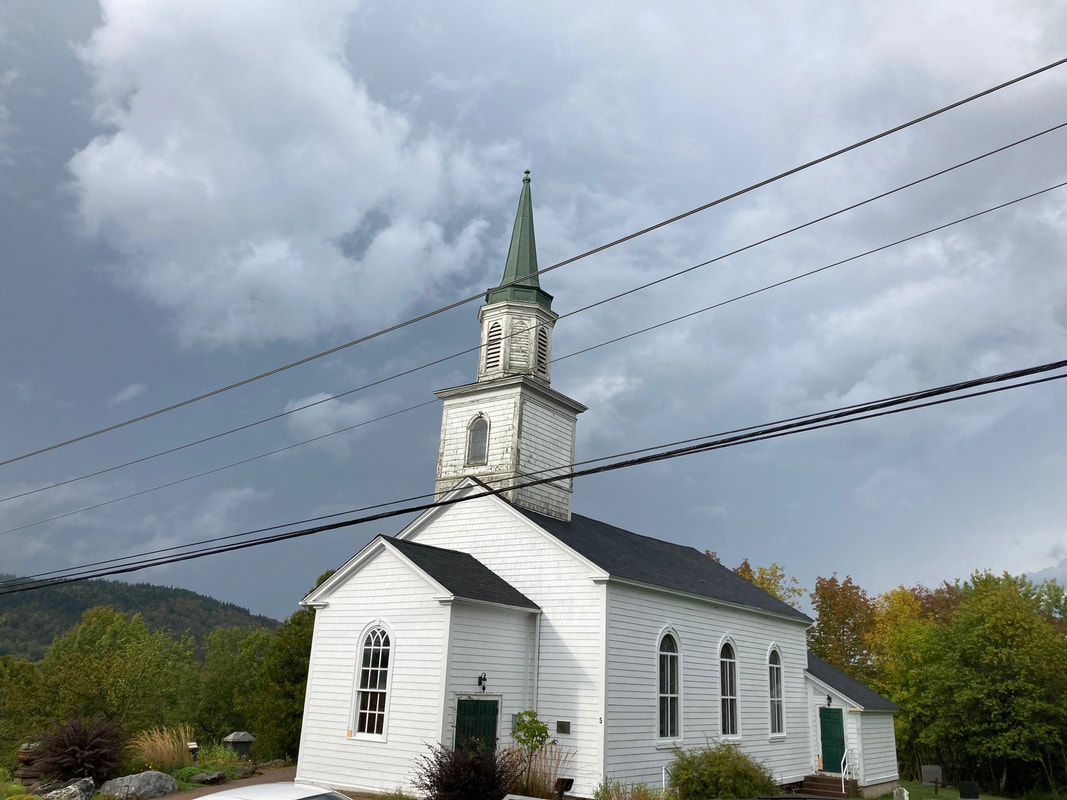
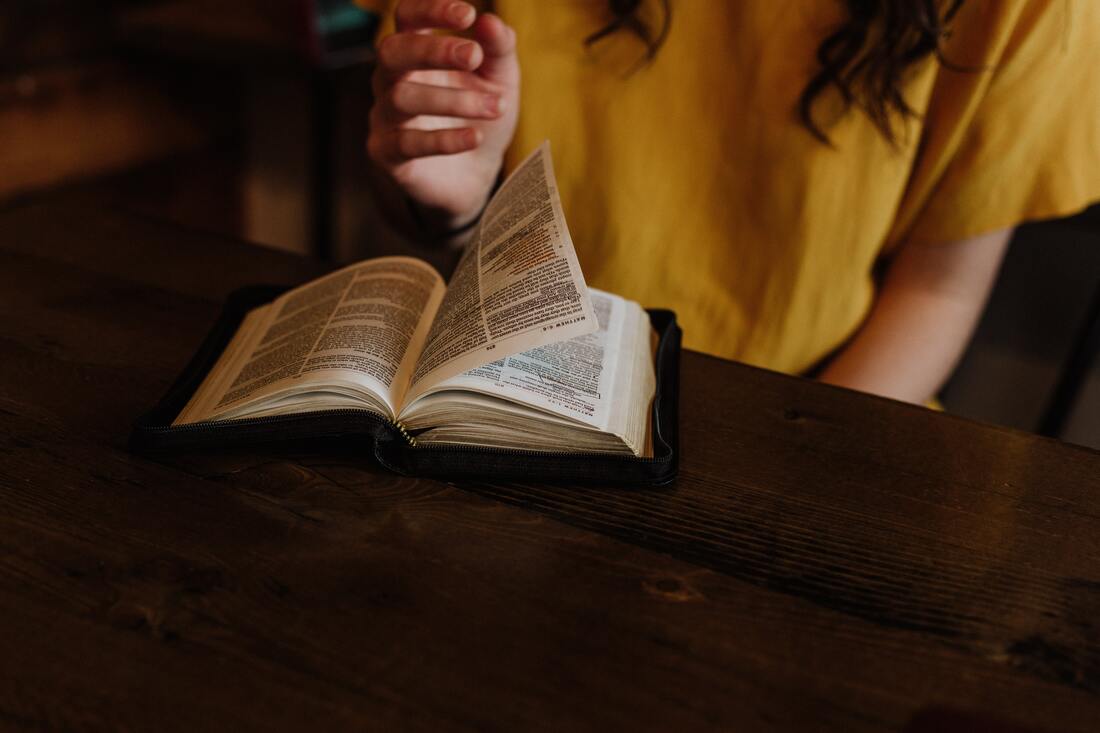
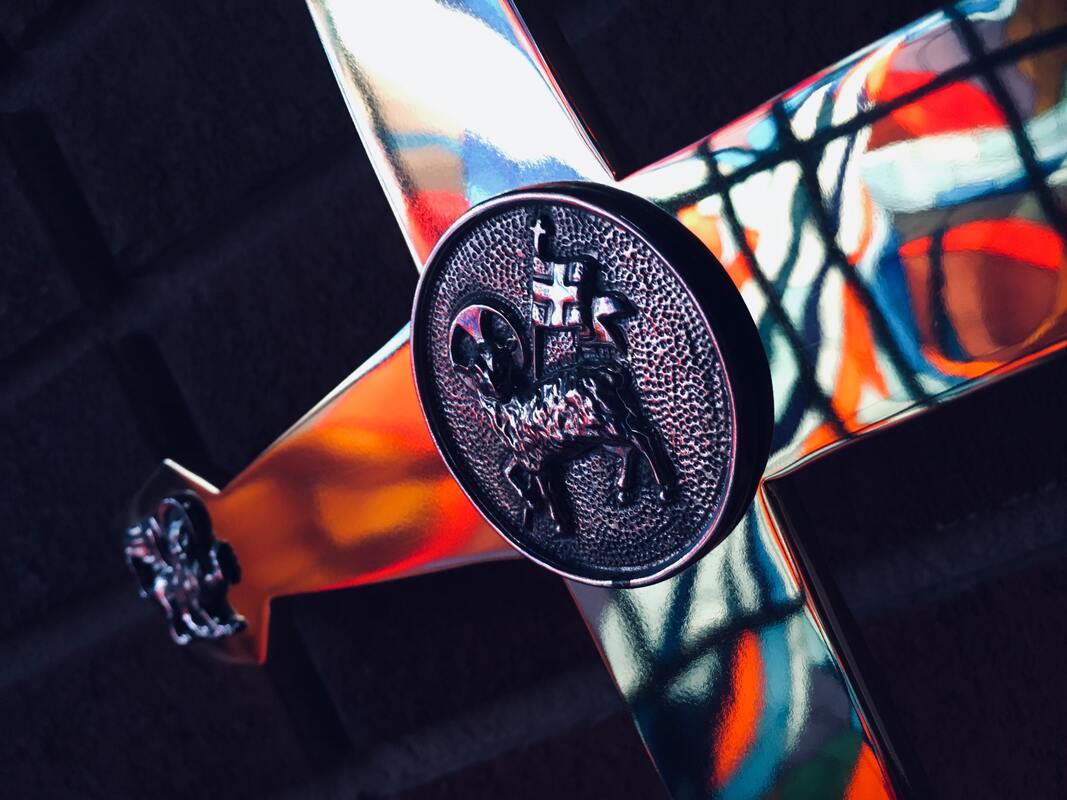

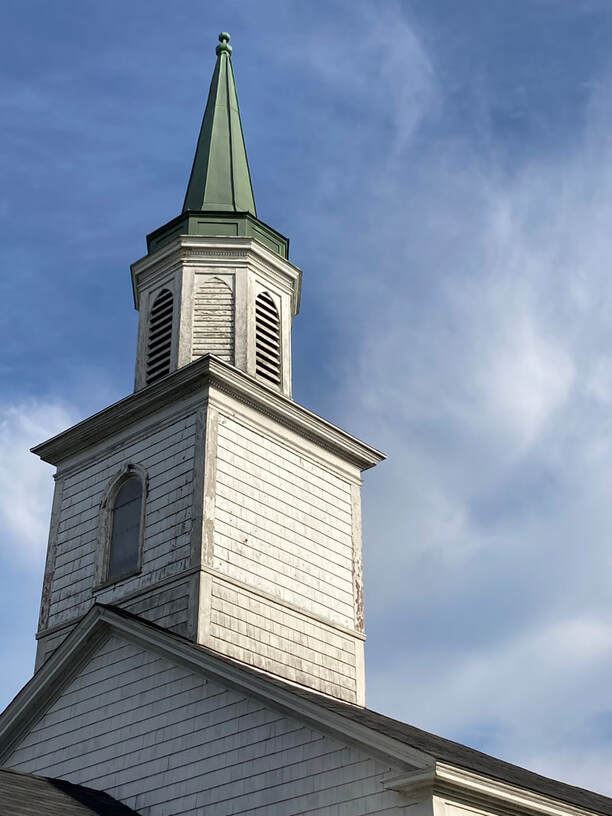
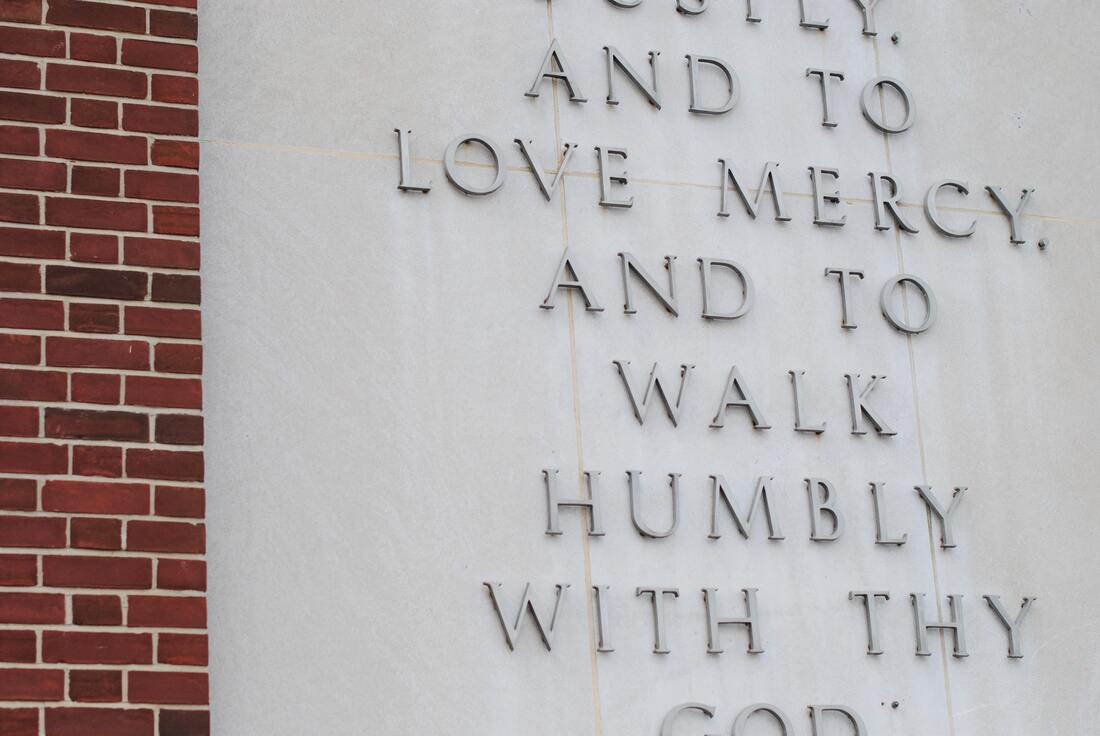
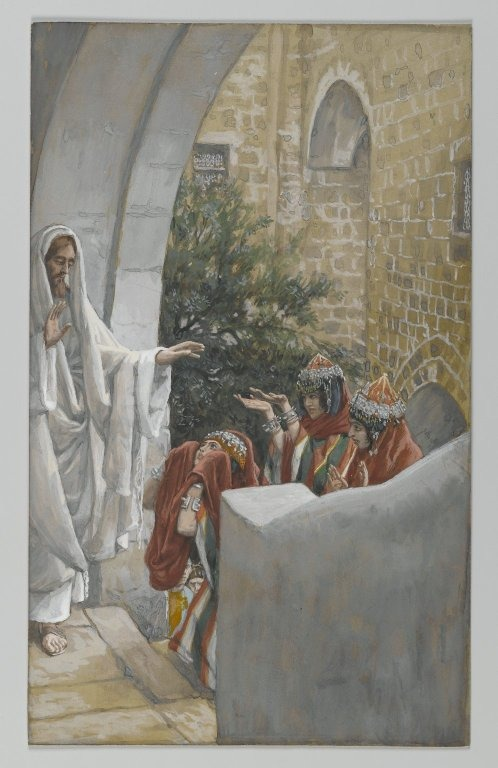
 RSS Feed
RSS Feed
